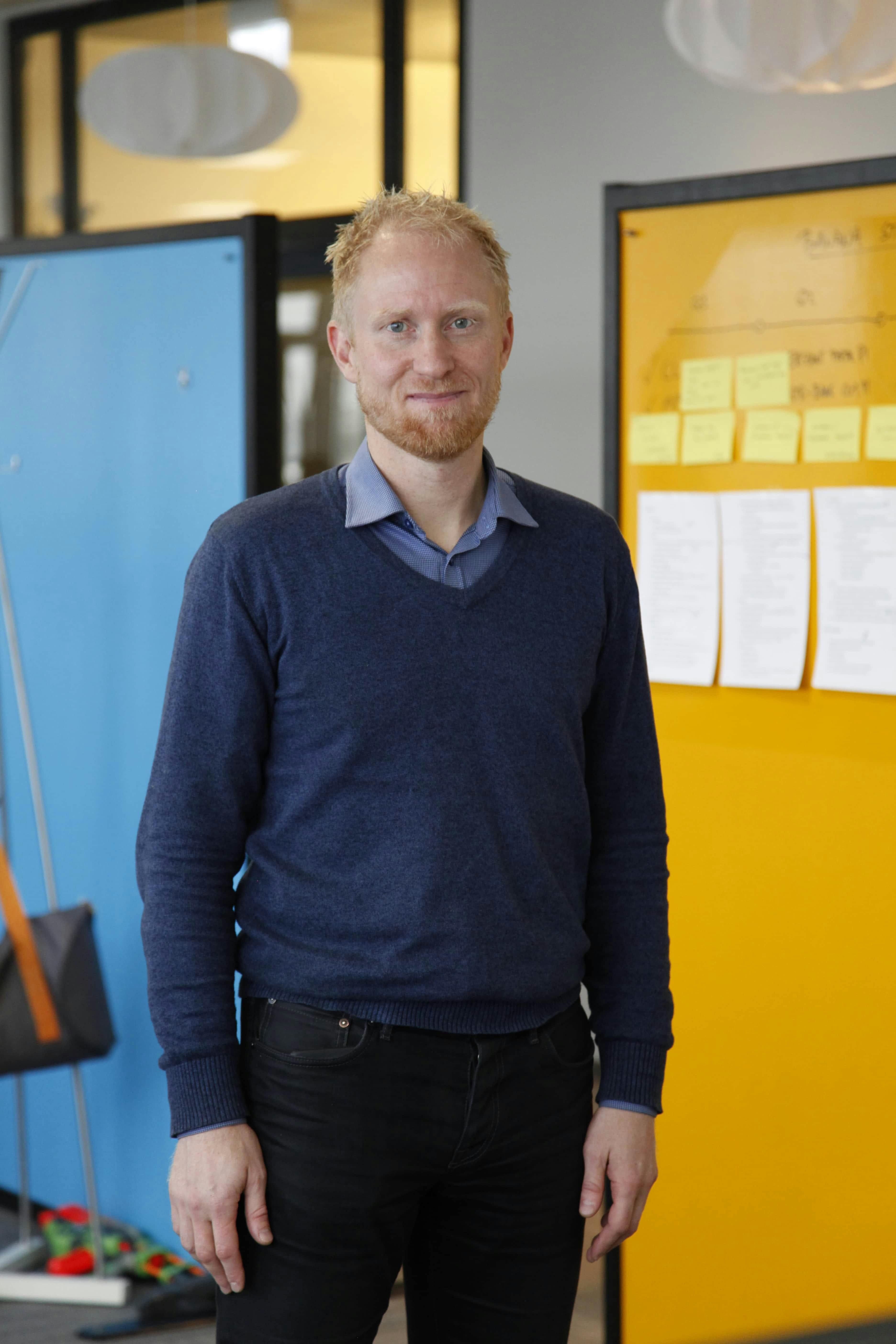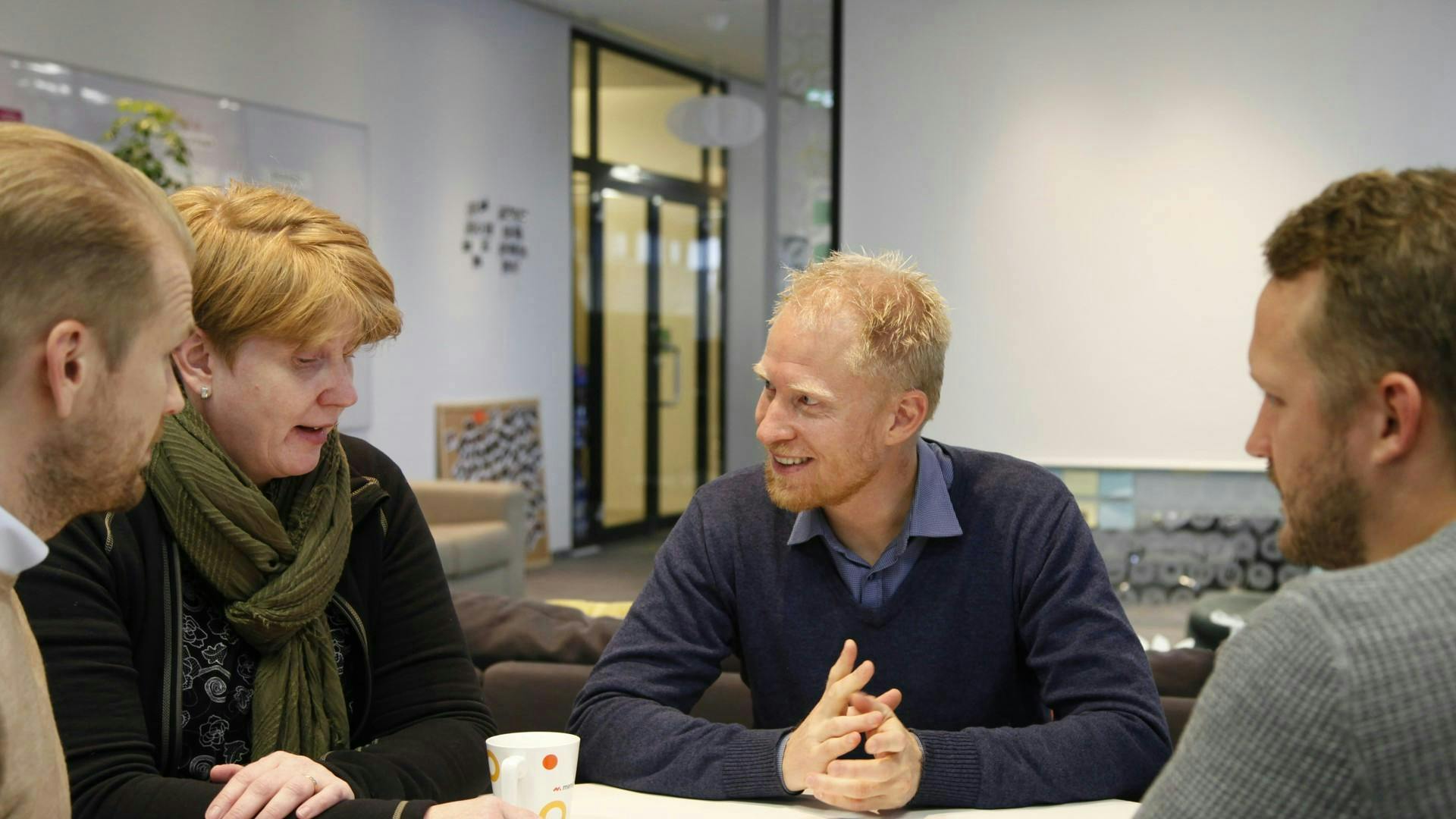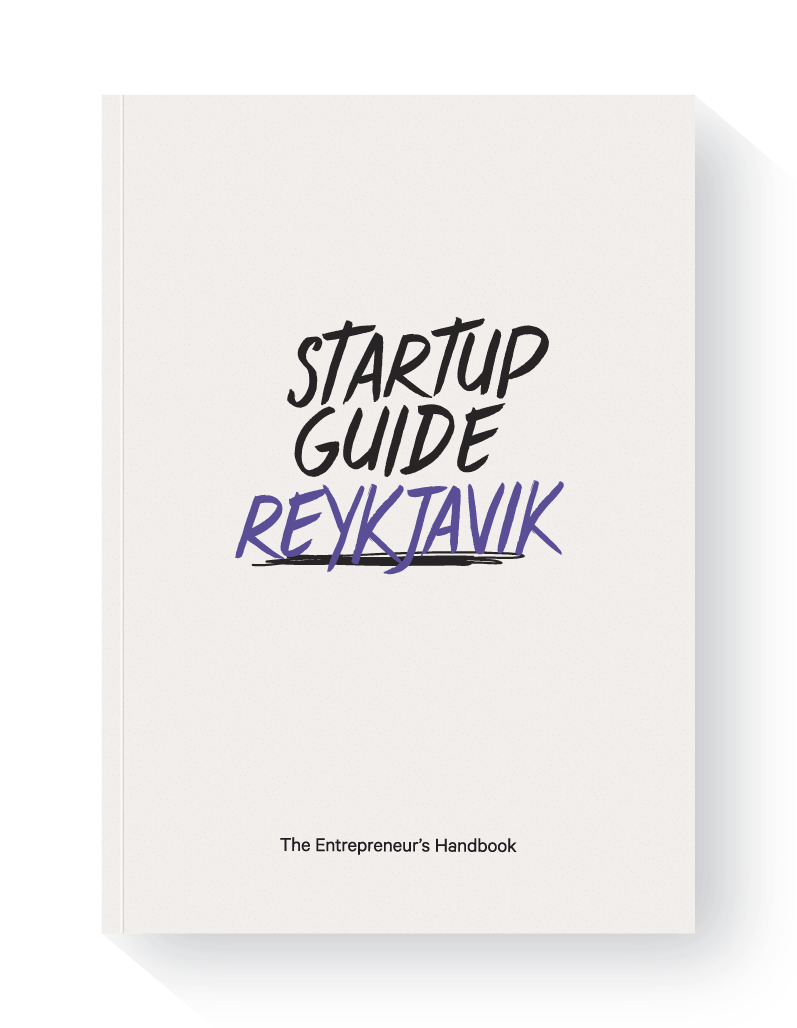"It's a privilege to be a startup CEO, but the lifestyle isn't sustainable for the long-term"
rom traveling salesman to serial entrepreneur, Georg Lúðvíksson, cofounder and CEO of Icelandic software company Meniga, has had his share of challenges. But these hurdles have motivated him to establish a more sustainable and meaningful life.
For Georg Lúðvíksson, the idea of entrepreneurship always had an attractive quality.
Beginning with his video game company in 1998 at the height of the dot-com era, Georg went on to cofound a further two companies, including his current enterprise, Meniga, that offers digital finance solutions to banks. As a self-described personal finance nerd, Georg created his company with the aim of helping people manage their finances better.
While many say that money cannot buy happiness, a person’s financial situation largely determines their quality of life – something that Georg experienced when his startup’s precarious cash flow caused him a significant amount of stress.
Financial problems, however, weren’t the only cause for unrest. Trying to balance an impossible workload with taking care of his wife and children proved to be an insurmountable challenge at the time. Realizing how unsustainable his lifestyle had become, Georg took steps to establish more of a healthy work-life balance.

Founder Georg Lúðvíksson in Meniga's office in Reykjavik. Photo: Startup Guide
How did you get to the idea for your current company?
I’d originally planned on doing a PhD in artificial intelligence or something similar, but I became passionate about the challenge of building companies and took a job as head of sales for a small Icelandic software company. I spent the next two years selling software to Fortune 500 companies, mainly in the States.
I got to know the States like only a traveling salesman could. There was a lot of learning in that. I think that's one of the key skills of any entrepreneur: you have to know how to sell. And I mean that in a very broad sense.
First you have to sell your idea to yourself, then you have to sell it to your cofounders and get a lot of feedback on your idea, and then you have to sell it to your prospective customers and investors and new employees.
I moved to Boston in 2006 and did an MBA at Harvard Business School, focusing on finance and entrepreneurship, then went back to Europe for family reasons in 2008. I’d already been working on the idea for Meniga for some time.
I'm a personal finance nerd: I was always the type who helped friends and family with money issues, how to think about them, what kind of mortgage to take and so on.
What is it about personal finance that interests you?
In most countries, it's more taboo to talk about how you manage your money than to talk about sex or anything else, yet it's such a big part of the quality of people's lives. Something happens in your life, and suddenly it really matters how much you've saved.
Many people are stressed out because they're overstretched or have borrowed too much. It's the number one reason for divorce, stress, absenteeism for work and so on. So it's a huge deal. That’s the mission of Meniga: to improve people's financial lives.
[ Read also: ‘A tiny market in the middle of the Atlantic’: Challenges to starting up in Reykjavik ]
When I moved back to Iceland in 2008, it was just as the financial crisis hit, and it hit Iceland pretty hard. But for this idea, that was actually a blessing.
In most countries, it's more taboo to talk about how you manage your money than to talk about sex, yet it's such a big part of the quality of people's lives.
We got some early talent from the Icelandic banks, which had seen a big drop in purchasing power, and we also got our first customers for our personal finance solutions in the recapitalized Icelandic banks, which were under pressure to give some relief to households struggling to make ends meet. We were one of the first companies in Europe providing such solutions at the time.
Tell me a little bit about how Meniga works.
We provide personal finance solutions, similar to Mint in the States or N26 in Germany, except that we work with banks to integrate our solutions into their digital banking applications. We work with thirty-five banks in eighteen countries. We're the European market leader in the space.
The best way to think about it is that we sell banks the building blocks to build the next generation of digital banking. Much of that is personal finance management, like budgeting and financial planning. We take a lot of inspiration from fitness apps like Strava and Fitbit, but instead of nudging people to live healthier fitness-wise, we do it money-wise, trying to get people to adopt healthier financial habits through small nudges and challenges.
It's never been more interesting to be in this space; there are so many changes underway in banking. There's new regulations coming in Europe that force banks to give others access to their data, like your bank-account and credit-card transactions. Just as you sometimes give apps permissions to access your Facebook data, you'll be able to do the same with your bank data and operations.
That opens the door for Google or Facebook or any startup to build an online bank, to do something smart with the data to help you optimize your spending. The banks are really worried about that. It's both a threat and an opportunity.
To prepare for this they're getting much more aggressive in using data and transforming the digital banking user experience. The big vision is that digital banking will soon be more than banking: it will be like a financial adviser, a money coach that helps you in a much broader sense.
When you access it, it'll be like accessing Facebook, telling you the story of your financial life. It's helping you optimize your spending, checking your payments and bills, and giving you advice on what to do. So these are very interesting times.
What kept you in the startup scene after you closed your first company?
Once you start companies, it gets addictive, like driving an ambulance. It's an emotional roller-coaster ride with ups and downs, and it's hard to go back. I’m not sure I'm employable anymore.
I knew I wanted to start more companies after I did my first one. If you're doing it, what keeps you at it is doing it in a field that you're really passionate about. It's a marathon, and what gets you through the tough times is the people you work with and being truly interested in the space.
As a personal finance nerd, I was the only guy I knew who knew exactly what I was spending and why, and how to think about spending now versus in the future, and I thought I had some talent at being able to convey this to others in a simple manner.
It's all about managing your emotions, and about delayed gratification. It's also about controlling your consumption and being at peace with yourself, and knowing what you want. It's about getting what you really want in life and not what you think you want.
Once you start companies, it gets addictive, like driving an ambulance. It's an emotional roller-coaster ride with ups and downs, and it's hard to go back.
I see so many people who could lead happier, more meaningful lives if they worked a little less and spent more time on their interests or with their kids, family and friends, but they're overstretched financially, so they feel stuck in the rat race.
You talk a lot about quality of life. How has founding a company affected your personal quality of life? What have been some of the ups and downs?
It's an extremely difficult thing to run an ambitious and growing company. That's one of the things that attracted me. I'm extremely competitive and I like the challenge of it, but it can be extremely difficult and intense. The worst days are excruciating.
Some people think it's hardest in the beginning, but there are hard things at every stage. I think it actually gets harder as it grows – you just feel much more responsibility.
Now I have almost fifty customers, I have lots of investors, I have a hundred employees, I have many more stakeholders. Building a company is hard. So many things have to come together at so many moments.
We've had times like most startups when we didn't know if we could make salary at the end of the month, and when we’ve had to manage our cash flows extremely carefully, and this just kills you.
At other times, the workload just seemed impossible. I have two kids, so I'm really obsessed with balancing my life. I divorced four years ago, four years after starting this company. I'm not saying it was because of this job, but that was a contributing factor, the heavy workload in the beginning.
I see so many people who could lead happier, more meaningful lives if they worked a little less and spent more time on their interests or with their kids, family and friends.
When you start a company, you need to have all parts of your life aligned. You need support from your social network, your friends, your family, and you need to be in a good place professionally and financially. This was a contributor to my long-term relationship failing, and that was really difficult.
On the other hand, building Meniga was something I really wanted to do. I wouldn't have been happy if I hadn't done it. But it was still a very hard thing to go through: it was a big thing. And now I'm a single dad every other week, and I set very clear boundaries.
I try not to work more than forty hours those weeks, and I don't travel on those days so I can spend considerable time with my kids. The other weeks I work much harder. I'm traveling all the time, every other week: this week I was in Italy, Paris, Reykjavik and London, and now I'm in Stockholm – five cities.
It's a difficult and intense lifestyle, so you have to take care of yourself. It's hard and it's not something I would want to do forever. Being a CEO of my own company is a privilege, but it's a lifestyle that’s not sustainable for a very long time.
What advice would you give to other founders?
Really know why you're doing it. Have a strong reason. Really dig deep into yourself and explain to yourself why you're doing this, and then communicate that to others.
This interview was originally published in Startup Guide Reykjavik in 2017.
Main photo: Startup Guide

